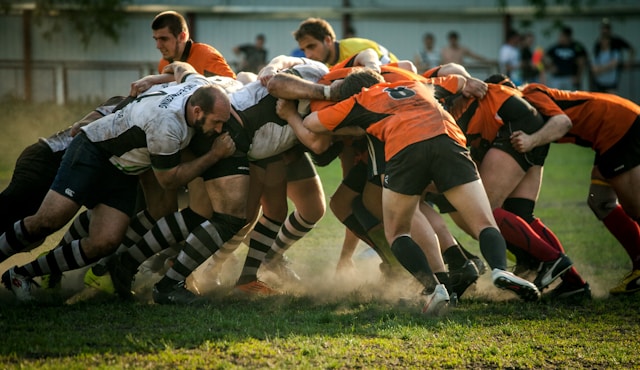Rugby sports schools are pivotal in shaping the next generation of athletes, instilling the core values and skills that make rugby not just a game, but a life-enriching discipline. These institutions combine rigorous physical training, academic support, and personal development, fostering well-rounded individuals ready to excel on and off the field. In a world where youth sports can play a transformative role in personal and professional growth, rugby sports schools stand out for their unique approach to developing not only athletes but also leaders of tomorrow.
What Makes Rugby Sports Schools Unique?
Unlike traditional schools with extracurricular rugby programs, rugby sports schools integrate the sport into their daily curriculum. This immersive approach ensures a holistic environment where students are deeply engaged in the game while balancing academic and personal growth. Key features include:
- Professional Coaching: Students learn from seasoned coaches, often former players, who bring a wealth of experience and an understanding of the game’s intricacies. These coaches go beyond tactics and technique, imparting lessons in discipline, strategy, and resilience.
- State-of-the-Art Facilities: Dedicated rugby fields, advanced training equipment, and modern gyms provide an environment that fosters excellence. Access to cutting-edge technology for video analysis and performance tracking also helps students refine their skills and strategies.
- Comprehensive Development: Beyond physical skills, rugby sports schools emphasize character building. Students are taught values like leadership, teamwork, and perseverance—qualities deeply rooted in rugby culture. These attributes prepare students to navigate challenges not just on the field, but in life.
In essence, rugby sports schools are unique because they integrate sport, education, and personal development in a seamless manner. This blend ensures that students graduate not only as skilled athletes but also as well-rounded individuals ready to contribute meaningfully to society.
A Day in the Life of a Rugby Student
A typical day at a rugby sports school is meticulously structured to balance academic, athletic, and personal growth. Mornings begin with academic classes designed to meet educational benchmarks and instill discipline. Subjects range from core academics like mathematics and science to specialized courses on sports psychology or nutrition, equipping students with knowledge that complements their athletic pursuits.
Afternoons are dedicated to sport-specific training. On-field sessions involve practicing scrummaging, lineouts, and tactical drills under the guidance of expert coaches. These sessions are tailored to individual and team needs, ensuring holistic development. Evenings often include strength and conditioning workouts, recovery sessions, or video analysis. Watching replays of games helps students understand their performance, analyze strategies, and learn from their mistakes.
This daily routine is demanding, but it mirrors the discipline and commitment required at professional levels, preparing students for the rigors of elite competition. The balance between academics and sports also ensures students are prepared for life beyond rugby, whether they pursue professional sports or other career paths.
Why Rugby is an Ideal Sport for Youth
Rugby offers a unique blend of physical, mental, and social benefits, making it an ideal sport for young individuals. Key advantages include:
- Teamwork and Collaboration: Rugby is inherently a team sport that demands constant communication and coordination. Players learn to rely on one another, fostering a sense of camaraderie and trust that extends beyond the game.
- Discipline and Respect: Central to rugby culture is the emphasis on respect—respect for referees, opponents, teammates, and the game itself. This instills a strong sense of sportsmanship and maturity in young players.
- Physical and Mental Fitness: Rugby challenges both the body and mind. The physical demands of the sport promote strength, endurance, and agility, while the strategic aspects develop critical thinking and decision-making skills.
- Global Opportunities: As a globally recognized sport, rugby opens doors for students to travel, compete internationally, and connect with diverse cultures. These opportunities broaden horizons and enrich personal experiences.
Through its unique challenges and rewards, rugby helps shape resilient individuals who are equipped to face the complexities of modern life with confidence and integrity.
Pathways to Professional Rugby
For many students, rugby sports schools serve as stepping stones to professional careers. These institutions often maintain strong connections with regional clubs, national teams, and scouting networks, offering students invaluable exposure. Regular participation in inter-school tournaments and regional competitions allows young players to showcase their talents and gain recognition.
Moreover, alumni from rugby sports schools frequently transition to university teams, professional leagues, and even international competitions. The structured training and mentorship provided during their formative years lay a solid foundation for success at higher levels. While not every student aspires to play professionally, the pathways and opportunities available make these schools an essential platform for those with ambitions in the sport.
Challenges Faced by Rugby Sports Schools
While the benefits of rugby sports schools are undeniable, they face several challenges that require attention:
- Funding: Maintaining state-of-the-art facilities, hiring professional coaches, and supporting travel for competitions demand significant investment. Many schools rely on sponsorships, donations, or government grants, which can be inconsistent.
- Balancing Academics and Athletics: Ensuring that students excel both on the field and in the classroom is a delicate task. Schools must provide adequate support, such as tutoring and flexible schedules, to help students meet academic standards.
- Inclusivity: Expanding access to rugby sports schools for students from diverse socioeconomic backgrounds is a priority. Scholarships and outreach programs can help ensure that talent and passion, rather than financial means, determine access to these opportunities.
Addressing these challenges is crucial for the sustainability and growth of rugby sports schools, ensuring they continue to nurture talent from all walks of life.
Conclusion
Rugby sports schools are essential institutions for developing future champions, not just in the game but in life. By providing a structured environment that promotes athletic excellence, academic achievement, and personal growth, these schools prepare students to succeed in every arena they enter. As rugby continues to grow globally, the role of these schools in nurturing the next generation of athletes and leaders becomes increasingly significant.
The holistic approach of rugby sports schools ensures that their graduates are not just exceptional players, but also individuals equipped with the values and skills needed to make a positive impact on the world. Whether on the rugby field or in other pursuits, the lessons learned at these schools remain with students for a lifetime, embodying the true spirit of the sport.




